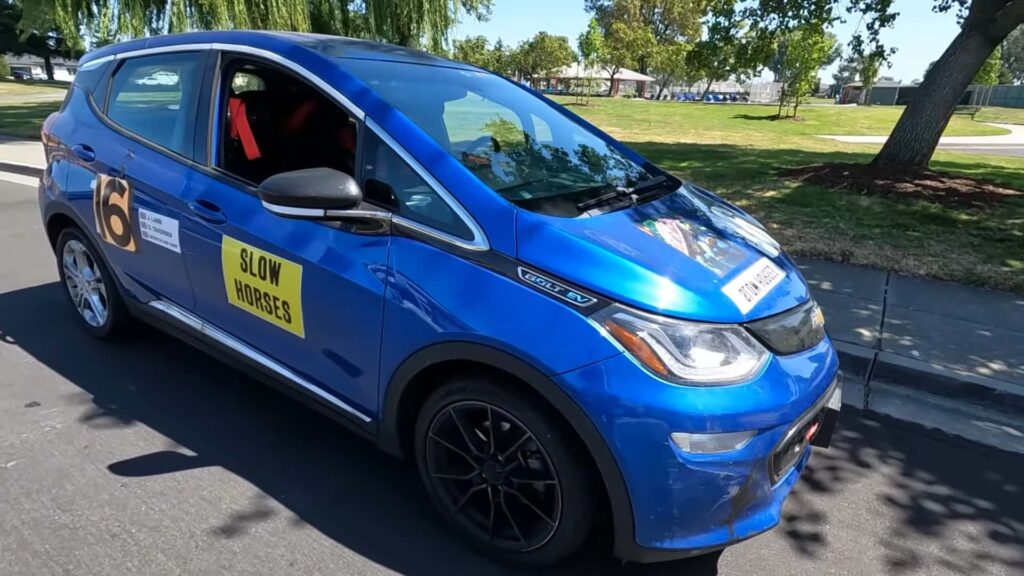- The original Chevrolet Bolt EV is a great commuter car.
- It’s affordable, simple and unpretentious. It’s also not exactly fast.
- In other words, it’s not exactly race car material. But that didn’t stop a small team of enthusiasts from turning a Bolt into a fun weekend track car.
The Chevrolet Bolt EV is a great little commuter. With used models starting from just under $10,000, it’s one of the best deals out there. You get over 200 miles of range and a decently sized car that can go from A to B without breaking the bank.
It also has 200 horsepower, which is decent for a daily driver, but it’s not exactly race car material. Despite all of this, a team of enthusiasts got a 2018 Bolt EV and turned it into a track car for some good-old weekend fun.
It all started after one of the team members became interested in the 24 Hours of Lemons race, which is a cheap and dirty way to get into wheel-to-wheel racing without expecting big wins. That’s lemons, not Le Mans. The latter is perhaps the world’s most legendary endurance race. The former is basically the same thing, but for dirt-cheap cars.
According to the EVTuners video embedded above, the American city EV got a custom-made roll cage, a pair of racing seats, a fire extinguishing system and a data logging device that uses a Raspberry Pi to do all the heavy lifting. A weight loss program was also put into place, with a lot of the original interior being ripped out in the name of weight savings.
Now, if you’ve ever heard of the 24 Hours of Lemons race, you might know that its whole shtick is low-priced cars. Specifically, participants should now spend more than $500, but that’s more or less a vibe, because last time I checked, $10,000 is more than $500. That said, the organizers allowed the Bolt EV to enter the race because it would spend two-thirds of it off track, waiting for the battery to recharge.
With a 60-kilowatt-hour battery pack, the 2018 Chevy Bolt EV is no range monster, and it’s even worse when you have to keep up with other race cars on the track. This is where the low-stakes mentality helps a lot. You have an hour or two of fun on the track, then you get to DC fast charge at a whopping 50 to 55 kilowatts, which is abysmal by modern EV standards.
But it’s relatively affordable, and it’s fun. And when you’re hitting the 24 Hours of Lemons, not Le Mans, that’s all that matters.

